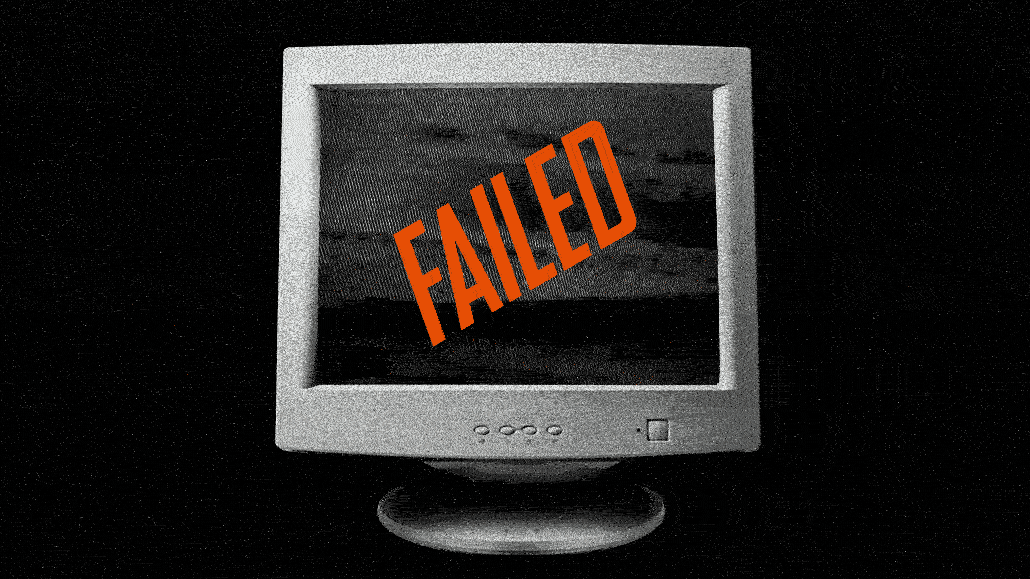Secure your place at the Digiday Media Buying Summit in Nashville, March 2-4
With layoffs mounting, esports veterans are split on the future of the industry

As layoffs sweep the gaming industry, esports is getting hit particularly hard, leaving some industry veterans feeling less than optimistic about the future of competitive gaming.
The story of the esports industry has always been a balancing act between the genuine passion generated by gaming at its highest levels and the less flashy, but increasingly important challenge of converting esports fandom into actual revenue. For years, steadily growing viewership numbers were enough to convince investors that profitability was just around the corner — but in 2024, that facade is falling away.
In spite of the esports industry’s public struggles, longtime observers of the space remain split about just how dire the situation actually is. Some believe that last month’s layoffs are evidence that esports will never become more than a marketing expenditure for game developers, while others see them as a necessary correction on the industry’s path to profitability.
To shed some light on the current state of esports, Digiday hosted a Twitter Space featuring leading industry journalists and observers on Feb. 8. Here are some of the key takeaways.
Click here to listen to a recording of the full Twitter Space discussion.
Many entrepreneurs in the space have made some bad bets
The participants in last week’s discussion who erred more on the cynical side of things pointed at some of the esports leagues and companies that have publicly crashed and burned in recent years, such as the Overwatch League or the entertainment network Venn, to show why future ventures in the space are potentially doomed to fail, irrespective of their ability to do esports better or more efficiently.
While it’s certainly true that there are still many esports companies still looking to build the industry in a more sustainable or equitable way, longtime industry observers including journalist Jacob Wolf believe that investors have simply been burned too many times to put more capital into esports in 2024. It’s a challenge that Wolf has personally experienced while trying to raise funds for his own production company, Overcome.
“A lot of the focus, when people talk about who’s been burned by all the hype and the [fear of missing out] in esports, is immediately to look towards investors,” Wolf said. “But it’s brands, too. Over the last few years, I’ve personally spoken to a lot of the agencies that represent big brands, and many of them said that they were misled and sold something that didn’t actually work out.”
‘The more investor money that we can bring in the better’
Not all participants in last week’s Twitter Space were concerned about burning potential investors. Matthew Gunnin, founder and former CEO of esports company Esports One, joined the discussion to point out that the failure of most esports companies was always part of the plan.
“The collegiate startups have taken in much more than they should have, and that has kind of hurt the industry. But investors and venture capitalists as a whole, their whole business model is based around risk, and around nine out of 10 of their investments going to zero,” Gunnin said. “So I think that’s one side of the argument that I would say — the more investor money that we can bring in the better.”
Other discussion participants noted that there is still ample money flowing into esports from stakeholders that don’t necessarily care about the returns on their investments. The Saudi Arabian Public Investment Fund, for example, has earmarked $38 billion toward its bid to become a hub of gaming and esports — but the goal of the expenditure is primarily to help build cultural power and acceptance within the gaming community, not necessarily to turn a profit.
“We’ve all been in this space for so long, and have seen all this shit happen,” said esports consultant and journalist Rod Breslau. “Now, we basically have Saudi Arabia running half of esports. Gambling sponsors own the other half.”
‘There’s no way to properly present esports as a whole’
Participants in the Twitter Space were split on the future outlook of esports, but they agreed that one of the industry’s biggest challenges is its struggle to sign broadcast rights deals. Furthermore, many of the most popular esports have entirely separate fan communities and livestream schedules, making it difficult for brands to reach the broader esports audience by sponsoring any individual team or league.
During the discussion, Breslau suggested one potential solution to both of these issues: a centralized premium streaming experience bundling together multiple large esports. This concept and variations of it have become increasingly popular within some corners of the esports community, though it remains unclear what exactly might motivate multiple corporate game developers to collaborate in such a way.
“There’s no way to properly present esports as a whole to be profitable when you have so many different stakeholders at the same time,” Breslau said. “So why don’t you get Riot, Activision Blizzard, Epic and Valve, because they are the four biggest stakeholders in the industry, to create one singular streaming platform that you have to pay for?”
More in Marketing

Future of Marketing Briefing: AI’s branding problem is why marketers keep it off the label
The reputational downside is clearer than the branding upside, which makes discretion the safer strategy.

While holdcos build ‘death stars of content,’ indie creative agencies take alternative routes
Indie agencies and the holding company sector were once bound together. The Super Bowl and WPP’s latest remodeling plans show they’re heading in different directions.

How Boll & Branch leverages AI for operational and creative tasks
Boll & Branch first and foremost uses AI to manage workflows across teams.








